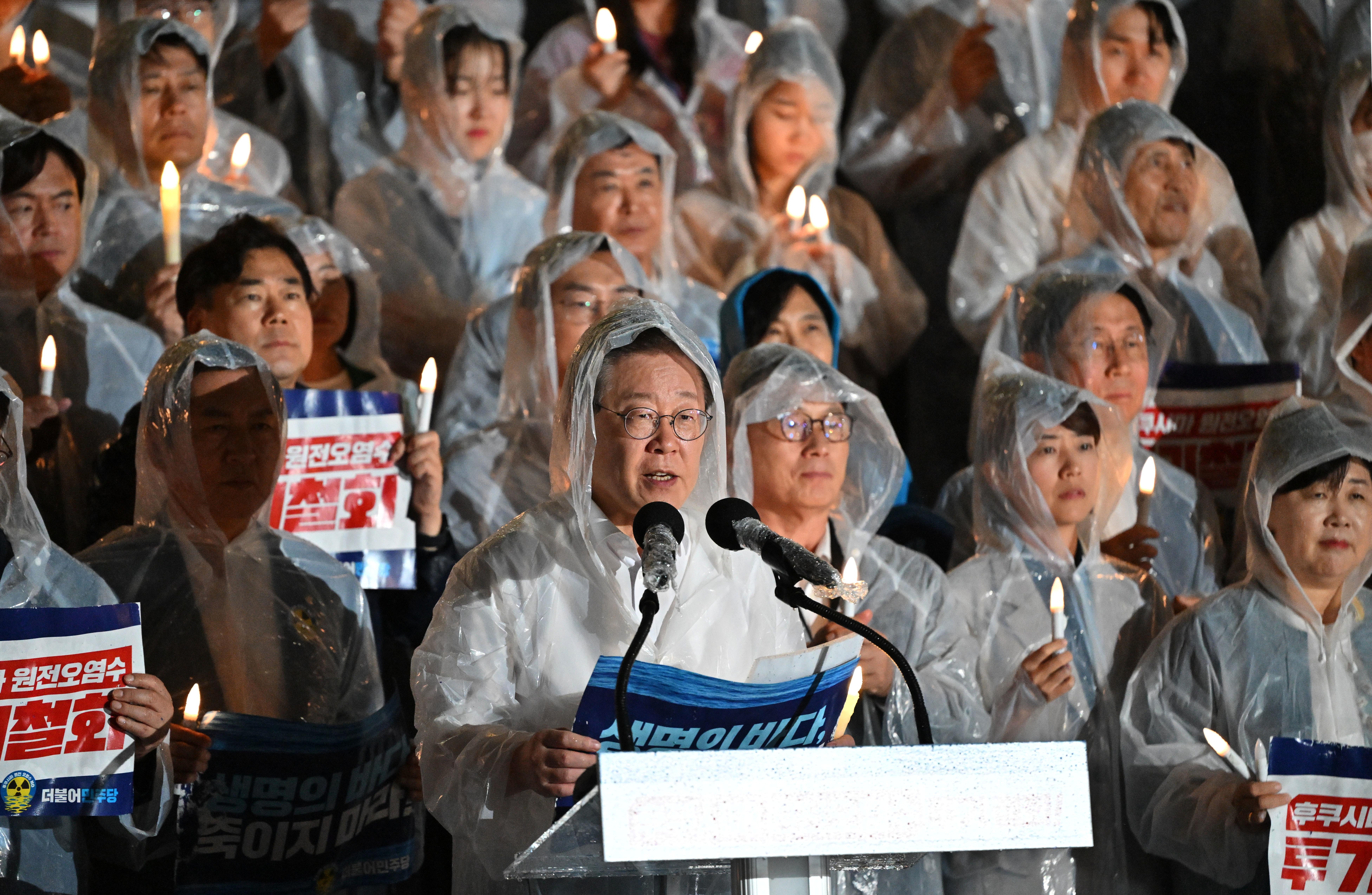 The ROK's main opposition Democratic Party leader Lee Jae-myung (center) speaks during a rally against Japan's plan to release treated water from the Fukushima nuclear plant, at the National Assembly in Seoul on Aug 23, 2023. (PHOTO / AFP)
The ROK's main opposition Democratic Party leader Lee Jae-myung (center) speaks during a rally against Japan's plan to release treated water from the Fukushima nuclear plant, at the National Assembly in Seoul on Aug 23, 2023. (PHOTO / AFP)
SEOUL - The Republic of Korea's main opposition leader began a hunger strike on Thursday to protest against government policies, including the passive stance taken over Japan releasing treated radioactive water from the Fukushima nuclear plant into the Pacific ocean.
Lee Jae-myung, leader of the Democratic Party of Korea, listed an assortment of reasons for his protest at a news conference, without saying how long his hunger strike would last.
READ MORE: Japan urged to try other means rather than release
They ranged from the government's economic mismanagement, to its divisive politics and threats to press freedom, a lack of accountability for last October's Itaewon crowd crush disaster, and the failure to oppose the Fukushima water release.
Turning to the Fukushima issue, Lee accused the government of being an " accomplice by backing up" Japan, instead of opposing it
Though it is not uncommon for politicians in the ROK to resort to hunger strikes to bring attention to their stand, it is rare for the leader of a major party to make such a strong gesture.
Turning to the Fukushima issue, Lee accused the government of being an " accomplice by backing up" Japan, instead of opposing it.
ALSO READ: Japan moves to discharge nuclear water
The ROK has said it neither supports nor agrees with Japan's action. President Yoon Suk-yeol has called critics of the release of the treated radioactive water "people who claim that one plus one equals one hundred."
Yoon's approval ratings slipped slightly to 34 percent according to a Gallup poll released on Friday, with foreign policy and the Fukushima water issue cited as factors behind his high disapproval ratings.
ALSO READ: US-led trilateral military partnership panned within ROK
Opposition leader Lee has had his own problems since becoming the head of his party a year ago, just months after he lost the presidential election.
Having already been indicted for graft earlier this year, Lee was recently charged over allegations of third-party bribery in connection with a company accused of illegal money transfers to the Democratic People's Republic of Korea. Lee has denied the allegations as "fiction".


